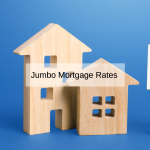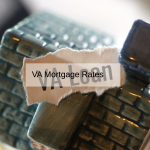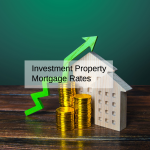FHA loans have become a popular choice for many homebuyers due to their flexible qualification criteria and lower down payment requirements. One key aspect of FHA loans that borrowers need to understand is FHA mortgage rates. These rates can significantly impact the overall cost of homeownership and the affordability of a loan. In this guide, we will delve into everything you need to know about FHA mortgage rates, including how they are determined, current rate trends, and tips for securing the best rates.
What are FHA Mortgage Rates?
FHA mortgage rates refer to the interest rates charged on loans insured by the Federal Housing Administration (FHA). These rates can vary depending on market conditions, borrower qualifications, and other factors. FHA loans mortgage rates are typically competitive with conventional mortgage rates and are designed to make homeownership more accessible to a wider range of borrowers.
How to Get the Best Mortgage Rate
Unlock insider tips and strategies to secure the best mortgage rate, from improving your credit score to shopping around and negotiating with lenders.
How FHA Mortgage Rates are Determined
FHA mortgage rates are determined by a variety of factors, including:
- Market Conditions: Like conventional mortgage rates, FHA rates are influenced by the overall state of the economy and the housing market.
- Borrower Qualifications: Borrowers' credit scores, debt-to-income ratios, and employment histories can all affect the interest rates they are offered.
- Loan Type: FHA offers both fixed-rate and adjustable-rate mortgage loans options, each with its own set of interest rate considerations.
Compare Mortgage Lenders Side by Side
Learn how to effectively compare mortgage lenders, weighing factors such as rates, fees, customer service, and reputation to find your ideal partner.
Benefits of FHA Mortgage Rates
- Lower Down Payment Requirements: FHA loans typically require a lower down payment than conventional loans, making homeownership more accessible.
- Easier Qualification Criteria: FHA loans are designed to be more accessible to borrowers with less-than-perfect credit or limited financial resources.
- Fixed and Adjustable Rate Options: Borrowers can choose from fixed-rate mortgages, which offer stability, or adjustable-rate mortgages, which can offer lower initial rates.
Drawbacks of FHA Mortgage Rates
- Mortgage Insurance Premiums (MIPs):FHA loans require borrowers to pay mortgage insurance premiums, which can increase the overall cost of the loan.
- Strict Property Standards: FHA loans require properties to meet certain standards, which can limit the types of homes that qualify for FHA financing.
- Loan Limits: FHA loans have limits on the amount that can be borrowed, which can restrict borrowers in high-cost areas.
Factors That Determine Your Mortgage Rate
Gain insights into the various factors that influence your mortgage rate, including creditworthiness, loan amount, down payment, and market conditions.
Some of Best Mortgage Lenders in the USA
- Quicken Loans - Known for their excellent customer service and fast loan processing times.
- Wells Fargo - Offers a wide range of mortgage products and has a strong presence nationwide.
- Chase Bank - Provides competitive rates and a variety of loan options to suit different needs.
- Bank of America - Offers competitive rates and has a strong online presence for easy access to mortgage information.
- US Bank - Known for their personalized service and flexible loan options.
- Rocket Mortgage - Offers a completely online mortgage application process for convenience.
- Veterans United Home Loans - Specializes in VA loans and provides exceptional service to veterans and active-duty service members.
- CitiMortgage - Offers competitive rates and a variety of loan options for homebuyers.
- SunTrust - Known for their flexible loan terms and excellent customer service.
- Freedom Mortgage - Offers a variety of loan options and specializes in helping first-time homebuyers.
- PennyMac - Known for their competitive rates and efficient loan processing.
- Guild Mortgage - Offers personalized service and a wide range of loan options for homebuyers.
How to Qualify for the Best FHA Mortgage Rates
To qualify for the best FHA mortgage loan rates, borrowers should:
- Maintain a Good Credit Score: A higher credit score can help borrowers qualify for lower interest rates.
- Keep Debt-to-Income Ratio Low: Lenders prefer borrowers with lower debt-to-income ratios, as they are seen as less risky.
- Demonstrate Employment and Income Stability: Lenders look for borrowers who have a stable employment history and sufficient income to repay the loan.
How to Refinance Your Current Mortgage
Navigate the refinancing process with confidence, from assessing your financial situation to choosing the right refinance option and lender.
Tips for Securing the Best FHA Mortgage Rates
- Improve Credit Score: Before applying for an FHA loan, borrowers should work to improve their credit score to qualify for better rates.
- Shop Around: Borrowers should compare rates from multiple lenders to find the best FHA mortgage rates available.
- Consider Rate Locks: Borrowers may want to consider locking in their FHA mortgage rates when rates are favorable to avoid potential rate increases.
FHA mortgage loan rates play a significant role in the overall cost of homeownership and the affordability of an FHA loan. By understanding how FHA mortgage rates are determined, current rate trends, and tips for securing the best rates, borrowers can make informed decisions about their home financing options. Whether you're a first-time homebuyer or looking to refinance, FHA loans can be a valuable tool in achieving your homeownership goals.
Frequently Asked Questions (FAQs) About FHA Mortgage Rates
1. What factors affect FHA mortgage rates?
FHA mortgage rates are influenced by factors such as market conditions, borrower qualifications (including credit score and debt-to-income ratio), loan type (fixed-rate or adjustable-rate), and economic factors.
2. How do FHA mortgage rates compare to conventional mortgage rates?
FHA mortgage rates are typically competitive with conventional rates. However, the specific rate offered to a borrower will depend on their individual qualifications and the lender's policies.
3. Are FHA mortgage rates fixed or adjustable?
FHA offers both fixed-rate and adjustable-rate mortgage options. Fixed-rate mortgages have a consistent interest rate throughout the loan term, while adjustable-rate mortgages have rates that can change periodically based on market conditions.
4. How can I qualify for the best FHA mortgage rates?
To qualify for the best FHA mortgage rates, you should maintain a good credit score, keep your debt-to-income ratio low, and demonstrate stable employment and income.
5. Can I negotiate FHA mortgage rates with lenders?
While borrowers can try to negotiate FHA mortgage rates with lenders, rates are ultimately determined by the lender and market conditions. It's important to compare rates from multiple lenders to find the best deal.
6. What is the average FHA mortgage rate?
The average FHA mortgage rate can vary depending on market conditions. Borrowers can check with lenders or financial institutions for current rate information.
7. Do FHA loans require mortgage insurance?
Yes, FHA loans require borrowers to pay mortgage insurance premiums (MIPs). This insurance protects the lender in case the borrower defaults on the loan.
8. Are there limits on how much I can borrow with an FHA loan?
Yes, FHA loans have limits on the amount that can be borrowed, which vary by location. Borrowers can check the FHA website or consult with a lender for specific loan limits in their area.
9. How do I lock in an FHA mortgage rate?
Borrowers can lock in an FHA mortgage rate by reaching an agreement with the lender. Rate locks are typically available for a specific period, during which the rate will not change, even if market rates fluctuate.
10. Can I refinance an FHA loan to get a lower rate?
Yes, borrowers with existing FHA loans can refinance to take advantage of lower rates. This process, known as an FHA streamline refinance, is designed to simplify the refinancing process for FHA borrowers.














